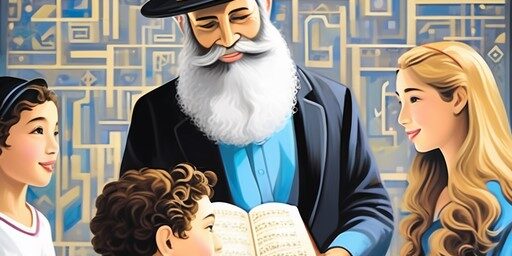From the Rabbi’s Study…February 9 and 10, 2024/30 Shevat and Adar 1 5784
Haftarah: Rosh Chodesh Adar 1 (Numbers 28:9-15) (Jeremiah 34:8-22, 33:25-26)
Please note this New Jewish month is Adar l that means that this year has a leap year and the next Rosh Chodesh will be Adar II and Purim (14 Adar II)
The Torah this Sabbath continues with a myriad of civil and criminal laws, including crimes of murder and kidnapping, treatment of slaves, personal injuries, damages through neglect or stealing, offenses against others through lying, idolatry, witchcraft, oppression, unfair business practices, and unjust conduct of judges. The Israelites are reminded to be sensitive to the strangers’ needs. The rules for Shabbat, the Sabbatical Year, Passover, Shavuot, and Sukkot are presented. The Commandment for Not to cook a kid in its mother’s milk. The ratification of the Covenant.
The Torah portion last Shabbat had the Ten Commandments and this Shabbat the civil laws and ordinances complete the foundation of Judaism.
These are the Mishpatim/rules which you shall set before them (the Israelites). (Exodus 21:1) The medieval commentator and scholar Rashi asks, “why the “Vav” (this Hebrew letter is the word ‘And’) is here and explains that it connects the Torah portion to the preceding one. He further explains that just as the Ten Commandments were given at Mt. Sinai, so, too, were the laws which follow in this Shabbat parshat. Our tradition ascribes to Moses through G-d, by divine revelation every holy book of Judaism also contains the Oral law as well as the Written law as well. The often quoted quote, “Every commandment is from Sinai, including that which any learned student will teach in all future generations.” (Jerusalem Talmud, Tractate Peah 2:6)
Most Modernist and Traditionalists (Conservative, Reform Orthodox) take this teaching very literally and believe that both the Written Torah and the entire Oral Torah were revealed to Moses at Mt. Sinai, and that this points out the non-literal understanding of Divine Revelation as given to Moses by G-d. Thus giving halakhic/religious righteous law and authority of each generation the ability to INTERPRET the teachings of Moseh to fit the needs of our own time.
Examples would be the new invention of electricity. Can one use the electric light on Shabbat? Can one drive a car? Can one now use a computer or telephone on the Sabbath? These are up to interpretation by the rabbis. The traditionalist would not use the electricity, while some of the other movements will. Today, many Jews live far from their synagogues and walking to attend services would be challenging. Many rabbis allow driving to synagogue. As for phones, computers and other modern inventions these are also interpretive. I observe the Sabbath as best one can by not answering my phone or using computers. I will hear my answering machine, and only twice in the eleven years did I answer to do a mitzvah, “Piku Nefesh/ to save a life.
As Jewish people of these modern times or eras one will have to address the needs of perpetuating Judaism and making Judaism more meaningful and spiritual for this generation.
Shabbat Shalom V’ Am Ysrael Chai,
Rabbi Helene Ainbinder







